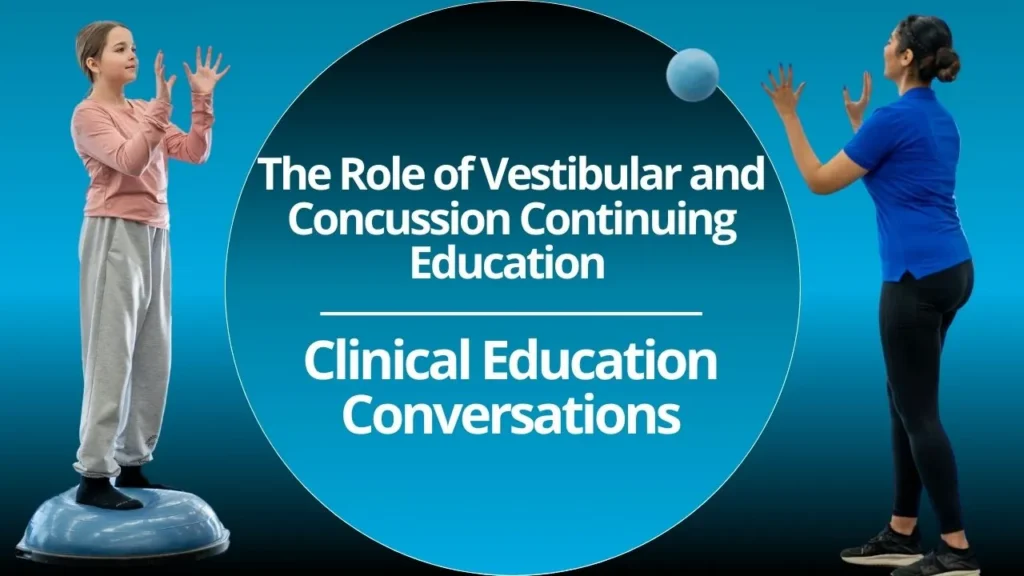
This blog explores the transformative impact of vestibular and concussion continuing education on both patient care and clinician expertise.
Navigating the complexities of vestibular disorders, particularly those following a concussion, presents a formidable challenge in clinical practice.
Given the intricate nature of these conditions, specialized training is beneficial and essential.
This blog explores the transformative impact of vestibular and concussion continuing education on both patient care and clinician expertise.
The Importance of Specialized Training
Vestibular issues, especially those stemming from concussions, can be daunting to diagnose and treat.
Ashley Langford, an experienced physical therapist and Director of Clinical Excellence at CORA Physical Therapy, underscores the importance of pursuing advanced education.
Vestibular and concussion certifications provide clinicians with the skills to manage not just straightforward cases but also more intricate vestibular conditions, enhancing their confidence and efficacy in clinical settings.
The Importance of Live Vestibular and Concussion Continuing Education Courses
The transition to virtual learning platforms has broadened access to education but often at the cost of hands-on experience.
These experiences are crucial for mastering precise techniques required in vestibular rehabilitation, such as accurate hand placement and patient positioning.
Real-World Application and Outcomes
Through her personal narrative, Caitlin Whitley, physical therapist and senior clinic manager, demonstrates the profound difference that specialized training can make.
After participating in advanced courses, Caitlin not only gained confidence but also became a recognized vestibular expert within her community.
This transformation highlights how continued education can elevate a clinician’s ability to handle complex cases, thereby improving patient outcomes and professional standing.
Expanding Clinical Horizons
Advanced training in vestibular and concussion management often reveals the interconnectedness of various human systems.
Clinicians learn to look beyond the initial symptoms to assess related areas such as the cervical spine and neurological function. This comprehensive approach is essential for developing tailored treatment plans that address all aspects of a patient’s health.
Case Studies and Clinical Experience
In recent episode of Clinical Conversations, Mark Martire shared a compelling anecdote where a patient referred for vestibular dysfunction was later found to have multiple sclerosis (MS).
This incident illustrates the critical need for thorough assessments and how advanced training can lead to correct diagnoses and appropriate referrals.
Such stories serve as powerful testimonials to the value of continuing education in preventing misdiagnosis and enhancing patient care.
Challenges and Considerations
While the benefits of vestibular and concussion continuing education are clear, clinicians face challenges such as time constraints and financial considerations.
Yet, the investment in education is returned through improved patient satisfaction, better treatment outcomes, and increased referrals, arguing strongly for its necessity.
Conclusion
The discourse among these knowledgeable clinicians culminates in a unified call to action: prioritize ongoing education.
For those dedicated to excelling in vestibular rehabilitation, particularly post-concussion care, the pursuit of specialized education is indispensable.
Call to Action
Clinicians are encouraged to deepen their understanding and expand their skills in vestibular therapy and concussion treatment by enrolling in specialized continuing education programs.
The journey towards excellence in patient care is ongoing, and each step taken is a step towards becoming a pivotal part of your patients’ recovery and quality of life.